How a business executive is bringing back his family’s historic Black Lexington farm
Jim Coleman knows how to get kids interested in farming. When a group of young students from the Martin Luther King Academy visited Coleman Crest Farm he showed them “a double dime bag,” of okra seed — two pounds costing $20 — and told them “this will produce $15,000 in gross sales. I caught their imagination!”
Coleman has been a business and economic development executive and lived in 13 cities across the country but his goal now is to grow organic vegetables “that won’t hurt people,” make the operation economically sustainable and share with children and adults the opportunities in farming and the beauty of the land his family has owned for four generations.
Coleman grew up on the farm his great grandparents bought in 1888 on Royster Road in Uttingertown, one of several historic Black rural settlements in Fayette County.
In 2001 he and his wife, Cathy — they met while he was studying economics and she chemical engineering at Howard University — bought the farm from his mother to keep it in the family but their lives and careers were elsewhere and the land rested for a couple of decades. They were living in Scarsdale, New York when Cathy fell ill with breast cancer, dying in April last year.
His advice to people who have gone through a loss like his is “stay busy, do something positive, be around positive people.” For Jim Coleman, that’s farming and being around farmers, who he says are generally “innovative, smart, committed, healthy.”
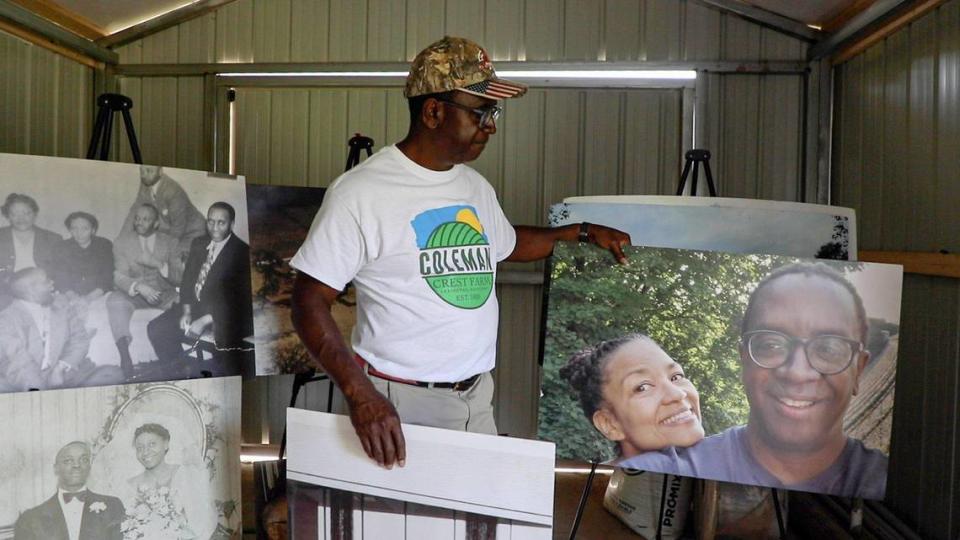
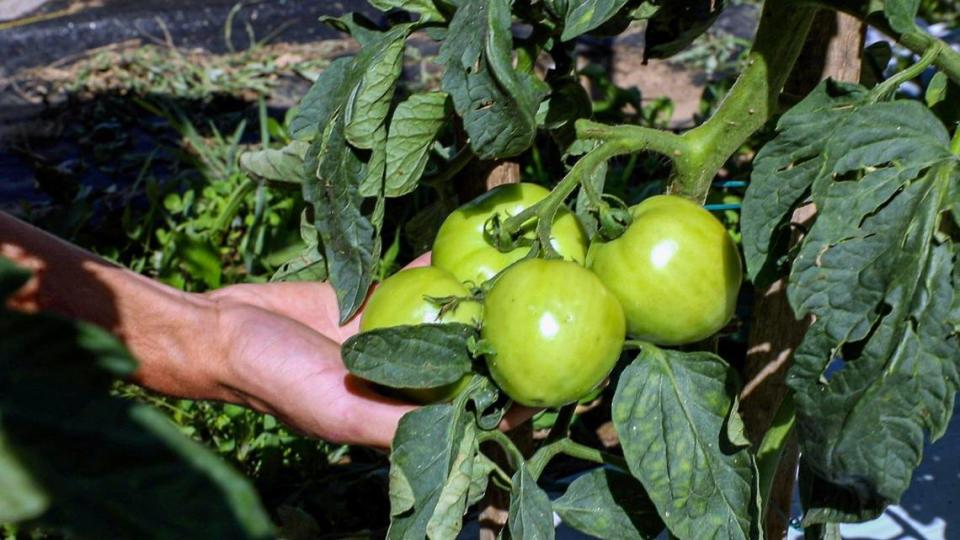
Coleman knows that many successes are made of hard work, good planning and careful management. But he says you also need a few “blessings,” and he’s had a couple important ones since returning to Coleman Crest Farm.
One is the family of Eric Walles and Gayle Tomkinson who have been organic farmers on Bryan Station Road for over 20 years. This January Gayle read about Coleman’s venture and called him up. They were looking to scale back and wondered if they could use some of their knowledge and equipment to get his farm going. That led to their son, Grant, a rising junior studying agriculture at the University of Kentucky and, of course, an experienced organic farmer working with Coleman this summer as his farm manager. It also paved the way for Coleman Crest to inherit some of their customers, including restaurants such as Ramsey’s Diners.
“Where can you get advice, customers and a farm manager all in one? The Walles family rocks,” Coleman said.
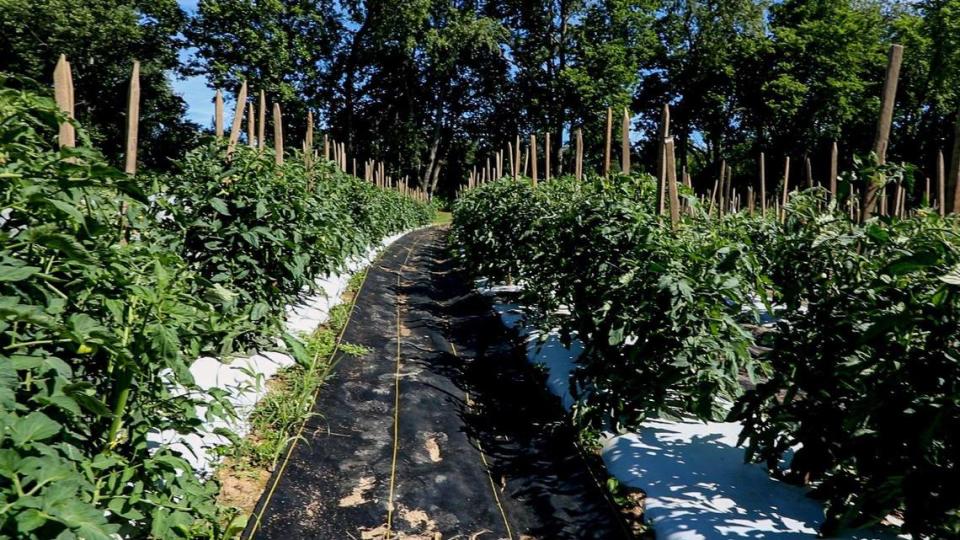
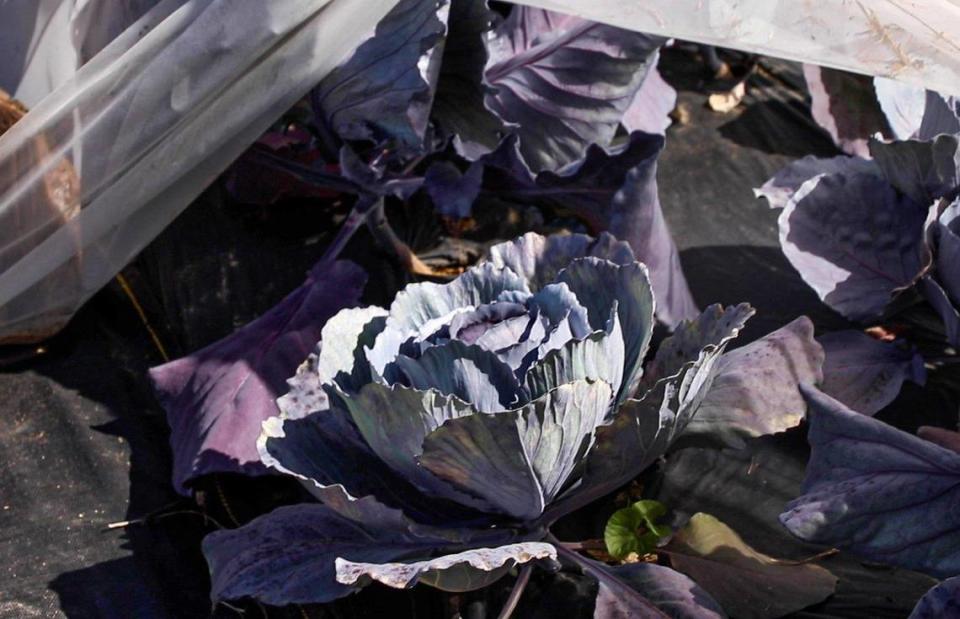
When Grant Walles and Coleman began developing a business plan in February, Grant said the first thing they needed was water and that led to another significant blessing. Coleman reached out to Tom Dugan, a geologist whose business Bluestone Geologic, helps people find water. Dugan knows the geologic features of the area well and came out to Coleman Crest and began what’s called an electric resistivity profile of the land. Essentially, that means sending electric charges down into the ground — solid rock is more resistant than water — to locate the underground openings that are “mother nature’s pipes that carry the water underground,” Dugan said.
The exploration is good at finding water but can’t predict with certainty how far down it is or how much water it will produce. In Fayette County, “more than 10 gallons a minute is a good well,” Dugan said.
So they began drilling. They found “a little water, about three to four gallons a minute” at about 35 feet, Dugan said. So they kept going until at about 110 feet “we hit this mega, mega break,” with water that began gushing at 400 gallons a minute. Coleman Crest Farm was in business.
With a water source assured Coleman built a pump house and an irrigation system that takes water in drip lines directly to plants growing in 100-foot rows that Coleman and Grant are tending using modern, chemical-free methods to control weeds. It takes three years to become certified as an organic producer so Coleman can’t claim that yet but it’s his goal.
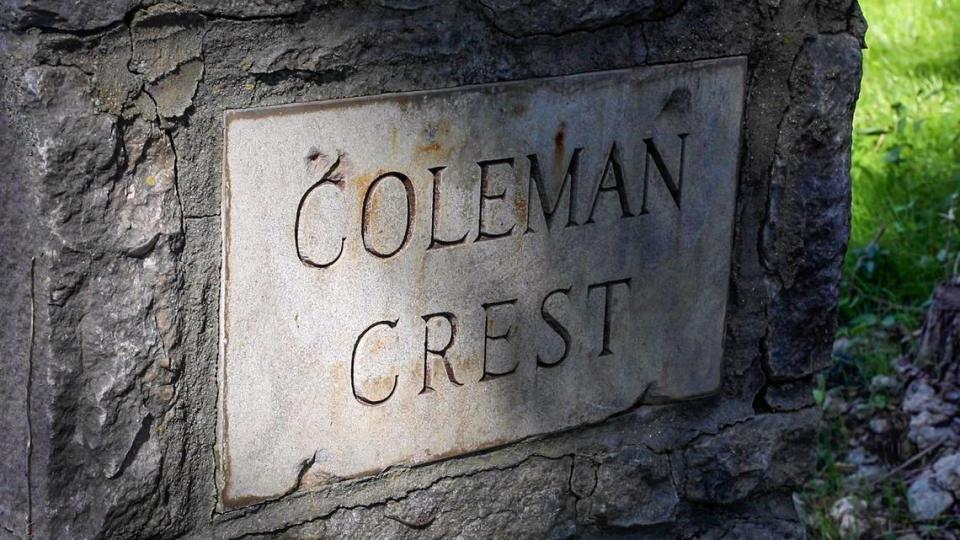
But Coleman wants to grow more than vegetables, he wants to create community and opportunity. In addition to the MLK Academy students, they had visitors from William Wells Brown primary school and Coleman hopes to expand the student experiences on the farm. He’s worked with Black Soil and recently hosted a Champagne and Fried Chicken dinner on the farm with the organization as part of SoulFest Week. And he has an incubator program where aspiring farmers can learn the trade on a plot on the farm before launching out on their own.
Modern farming has improved many things — special equipment to plant seed (Grant said a machine his dad bought can squeeze what would have been a month’s worth of okra planting to three or four days — but prickly okra has to be harvested by hand. That means putting on gloves and long sleeves in the summer heat while painstakingly traveling the 100-foot rows to get the pods at their prime.
He’s already lost ten pounds and works long days at the farm. When it comes time to harvest the okra the days will get even longer, Coleman says, “and I can’t wait.”

